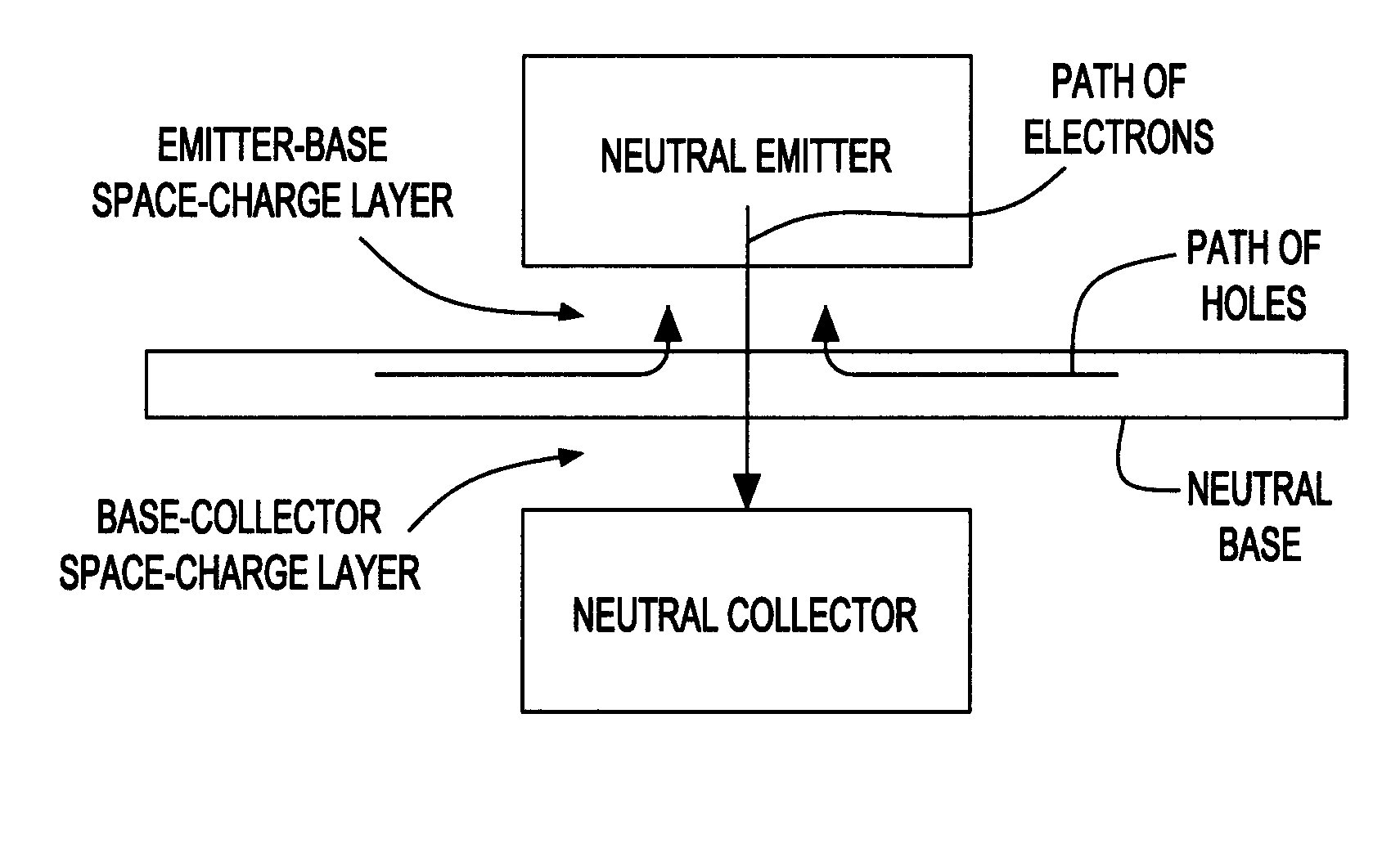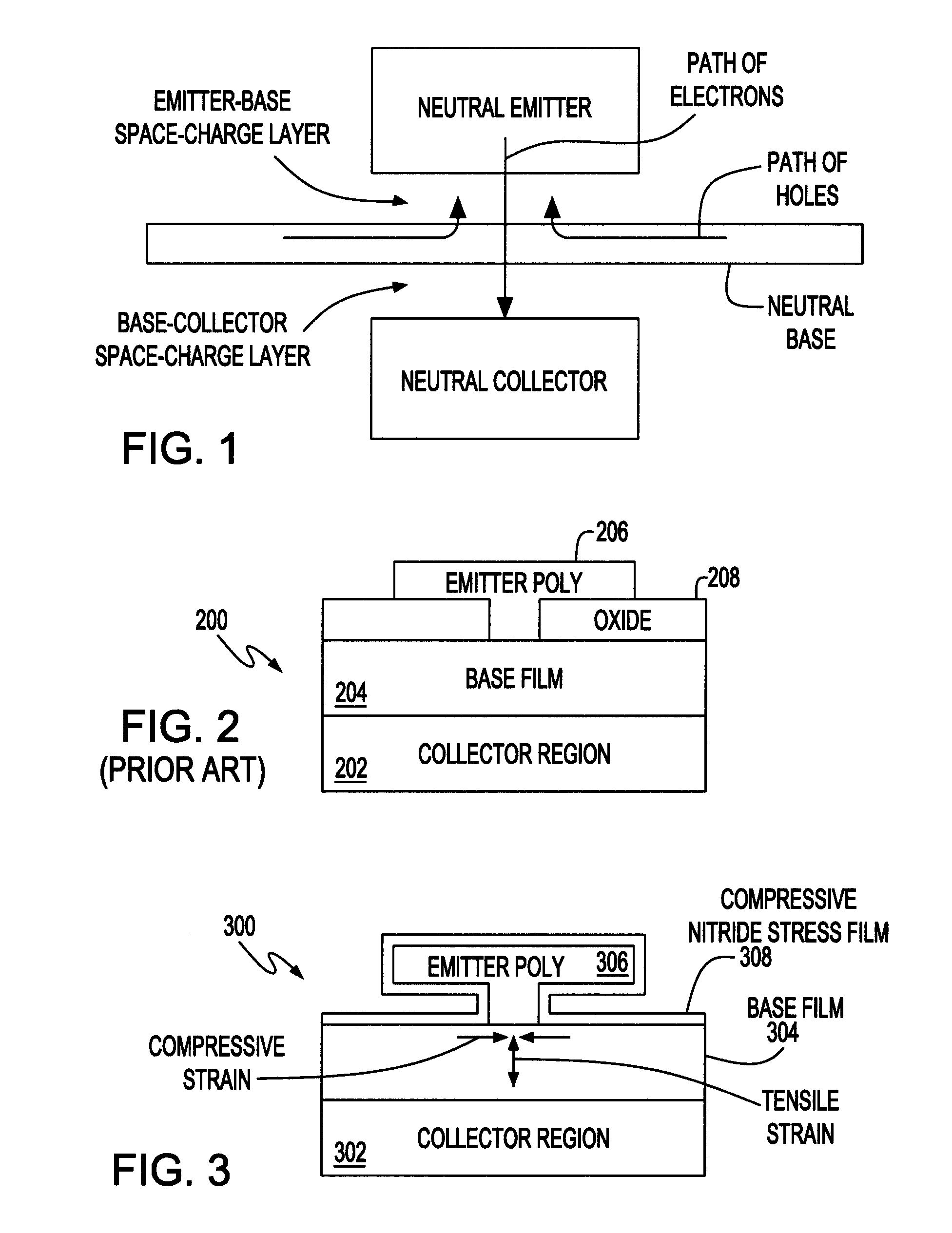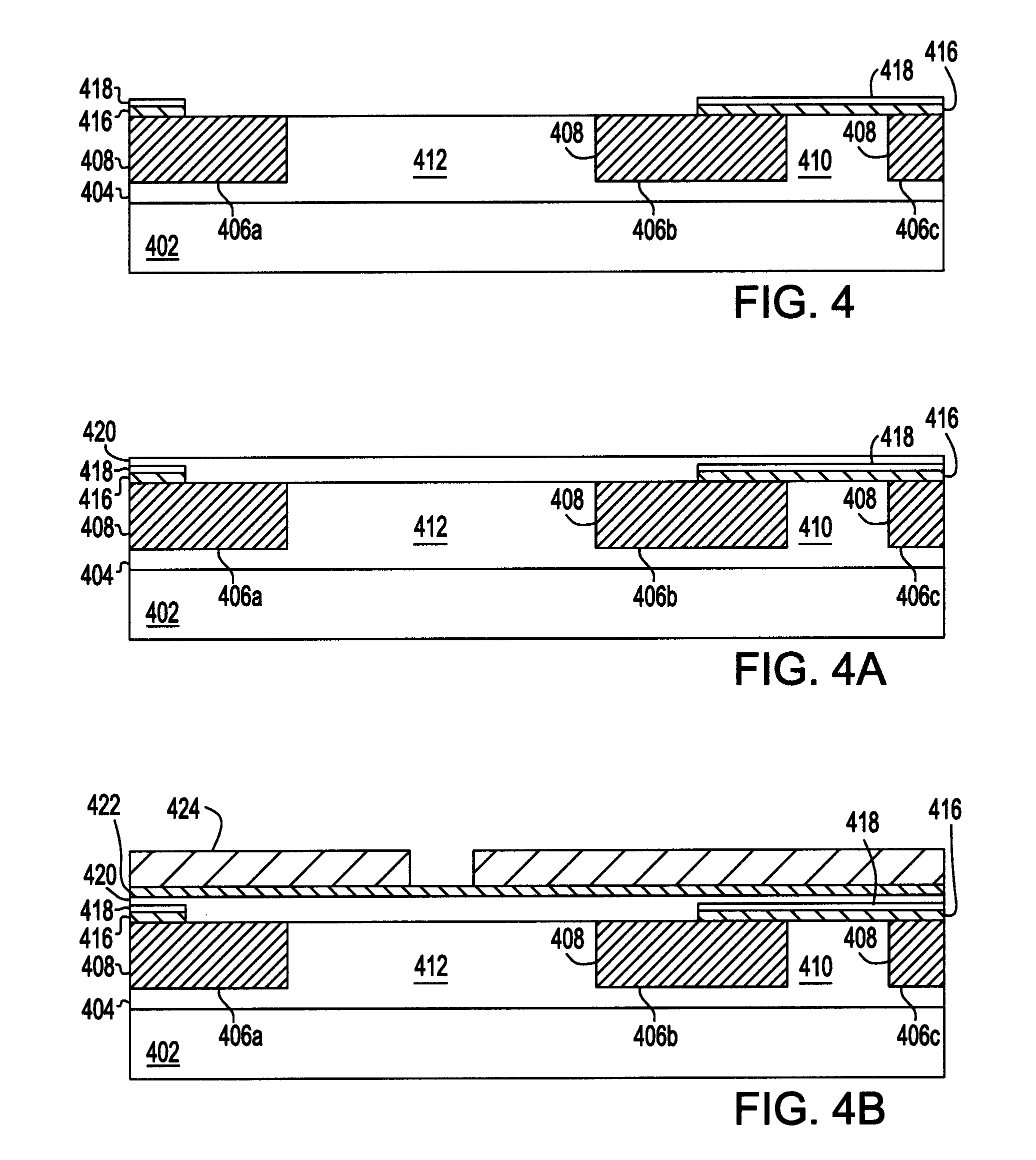Creating increased mobility in a bipolar device
a technology of bipolar devices and mobility, applied in the direction of semiconductor devices, basic electric elements, electrical apparatus, etc., can solve the problems of limited bipolar device performance, largely unexplored bipolar device field, and inability to increase the performance of bipolar devices, so as to improve performance, improve hole mobility, and reduce field mobility
- Summary
- Abstract
- Description
- Claims
- Application Information
AI Technical Summary
Benefits of technology
Problems solved by technology
Method used
Image
Examples
Embodiment Construction
[0038] In the description that follows, numerous details are set forth in order to provide a thorough understanding of the present invention. It will be appreciated by those skilled in the art that variations of these specific details are possible while still achieving the results of the present invention. However, well-known processing steps may not be described in detail in order to avoid unnecessarily obfuscating the description of the present invention.
[0039] Materials (e.g., silicon dioxide) may be referred to by their formal and / or common names, as well as by their chemical formula. Regarding chemical formulas, numbers may be presented in normal font rather than as subscripts. For example, silicon dioxide may be referred to simply as “oxide”, chemical formula SiO2. For example, silicon nitride (stoichiometrically Si3N4, often abbreviated as “SiN”) may be referred to simply as “nitride”.
[0040] In the description that follows, exemplary dimensions may be presented for an illus...
PUM
 Login to View More
Login to View More Abstract
Description
Claims
Application Information
 Login to View More
Login to View More - R&D
- Intellectual Property
- Life Sciences
- Materials
- Tech Scout
- Unparalleled Data Quality
- Higher Quality Content
- 60% Fewer Hallucinations
Browse by: Latest US Patents, China's latest patents, Technical Efficacy Thesaurus, Application Domain, Technology Topic, Popular Technical Reports.
© 2025 PatSnap. All rights reserved.Legal|Privacy policy|Modern Slavery Act Transparency Statement|Sitemap|About US| Contact US: help@patsnap.com



